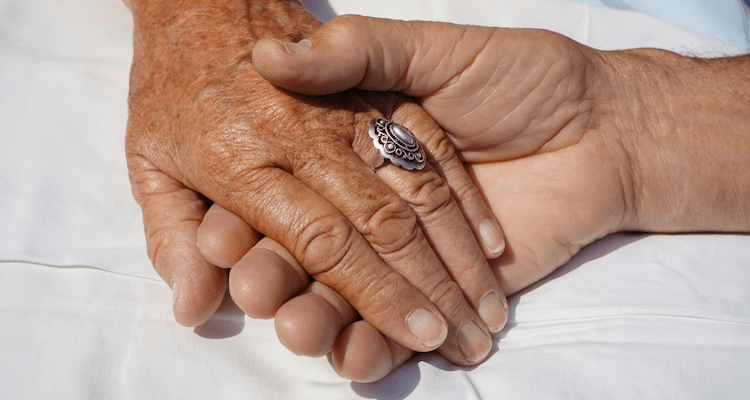April 18, 2017 - Stephen S Bowman's Blog
Stephen Bowman on leadership: Embrace risk, not conventional thinking

Stephen Bowman is shown at the headquarters of the Peregrine Companies, the umbrella organization for his real-estate development and senior-care companies. What qualities are required for entrepreneurship and leadership? Bowman lists creativity, passion and the ability to take fresh ideas seriously. “Don’t be afraid of new ideas,” he says. “Not only intellectually, but also in terms of implementation.” (Stan Linhorst / slinhorst@syracuse.com)
By Stan Linhorst | slinhorst@syracuse.com Email the author | Follow on Twitter on April 18, 2017 at 5:12 AM
Stephen S. Bowman is a real-estate developer and the founder and president of Peregrine Senior Living.
Peregrine develops and operates assisted-living facilities with a special focus on memory care or dementia. Bowman, who has a law degree from Georgetown University, started the company in 1995. Syracuse attorney Mark Farchione joined as co-owner a year later.
The company, headquartered on Montgomery Street in Syracuse, operates 15 senior-living communities in five states. Five more are under construction, including an $11 million assisted living facility, part of a long-term, $250 million,168-acre development that includes offices, retail and 138 single-family homes near Onondaga Community College.
Tell me about Peregrine.
When I started Peregrine, I was primarily a real estate developer and worked for Mike Falcone and Pioneer Cos. I realized that I wanted to start my own company, and I looked around at options. Like many others, I decided to follow the demographics of the Baby Boom. Many successful careers have been built around following that demographic, from suburban housing to Gerber baby food. Today, you see all the advertising on TV for stock portfolios and Viagra.
I realized we really don’t have a meaningful model of care for dementia.
Five and a half million Americans have dementia today. In 10 years, it’s probably seven and a half million. As Baby Boomers retire at 10,000 a day, they’re kind of rushing into this epidemic. As a society, we haven’t thought hard enough about what dementia care should look like beyond the institutional concepts.
What do you think it should look like?
We developed something called the Peregrine Way.
It’s about 180 degrees different from the industry.
For example, if the industry is built around the notion of saving short-term memory, Peregrine accepts that short-term memory is going to be decimated. If I want to give you comfort or gentle stimulation, I’m going to do it through your long-term memory.
We talk a lot more about the past, with autobiographies and photographs and lecture series. Each resident has a biography written. It’s therapeutic to write the story, but then, when I’m agitated, I can have that story re-read to me, and hopefully reinforce joyful long-term memories.
We have something called Peregrine University. It’s not an educational program, it’s a reminder program – lectures about things you already know about. It reminds you about your past and hopefully a joyful past.
We have intense family programs because we think it’s fundamental to keep families involved. Across the country, about 85 percent of residents with memory care don’t receive any regular visitors. So, they’re really abandoned. We give weekly training to our aides in an industry where typically you get 40 hours in front of a computer screen when you get hired, and that’s it. Our aides often become a resident’s primary relationship.
Fundamental to the Peregrine Way is our emphasis on spirituality. We have a chapel and a spiritual director in every one of our buildings – which is almost unheard of in a non-religious provider. For most of us, religious memories are fundamental to who we became.
We try to think out of the box. There’s no idea that’s too crazy for us to consider. As a result, we have a unique model.
Were you in leadership roles growing up?
I served as student council vice president at CBA (class of 1977), but I wouldn’t describe me as a leader. I always worked full time on multiple jobs, which is I why I was not very active beyond the student council.
Where I think started to stumble into leadership opportunities was in politics. I graduated from Canisius College in 1982 (B.A. in political philosophy) and went right to work for Lt. Gov. Mario Cuomo. I moved to Albany, and then I moved to Washington, D.C. I just continued to move into another level of political opportunity, which culminated in my running for Congress in 1988, in a primary against Rosemary Pooler, which didn’t work out very well for me. (Laughs) I realized I had to go to work to provide for my family.
Stephen Bowman on leadership: Embrace risk, not conventional thinking
Phil Turner on leadership: Have a heart for the people and a love for justice
Jason Covey on leadership: Build a team, delegate, get out of the office
Diane Schmid-McCall on leadership: Don’t be phony; people know when you’re not genuine
Bea Gonzalez on leadership: Help people see what they have in common
Who were early leadership influences?
Michael Falcone was a big influence on me. He was my first employer, and I have a lot of admiration for him. He understood how to balance risk and reward and how to manage the risk. He’s a pretty good poker player, very shrewd, and I was grateful to work with him closely for five years before I started Peregrine.
You can’t distinguish yourself if you’re conventional; there’s too much competition
In college, a professor named Larry Jones instilled in me an appreciation of ideas and value of ideas. That’s fundamental to what Peregrine is. Because I emphasize ideas, we’re able to be not just real estate developers but innovative providers of conventional;
What advice would you give a new leader or someone aspiring to take on leadership responsibilities?
Don’t be afraid of risk. Don’t be afraid of thinking out of the box.
Peregrine has always done things differently than the conventional providers and operators of long-term care. We developed our first building in a Polish blue-collar community in Buffalo. Everyone said: Ethnic groups will never go with assisted living. That, of course, was not true. Everyone pursued the conventional opportunities, the affluent first-ring suburbs. But no one was building them in blue-collar communities. We are always willing to think out of the box.
What do you mean by thinking outside of the box?
Most businesses are dominated by conventional models of how things can be done, and no one really asks hard questions about doing things differently.
You can’t distinguish yourself in business if you’re conventional. There’s too much competition.
A business leader always needs to look for new opportunities. What’s the next opportunity following the Baby-Boom generation? How can you address their needs? How will the senior housing model adjust and reflect the changing taste of the Baby-Boom generation versus the previous generation, my parents’ generation? Their tastes, their ideas, their needs are probably going to be substantially different. You need to think about that and get in front of those opportunities.
What would you want a new leader to know about leading people?
Don’t be afraid of expressing emotions. One of the challenges of assisted living and dementia care is that we’re dealing with life and death every day.
Our line staff becomes the last primary relationship in our residents’ lives. I’ve got to convince them of the importance of that responsibility. If they accept that responsibility, then great things can happen. But I have to be credible as a leader in communicating my passion and admiration for that awesome responsibility.
You communicate passion, one, by speaking about it and sharing it. And two, you do it leading by example.
What attributes do you see in poor leadership?
The biggest failure in leadership is a failure to foster creativity and new ideas. There’s nothing worse for a culture or a company if there is not a dynamic and fluid environment to share ideas and foster creativity. Nothing leads you faster into mediocrity and failure than having an oppressive environment regarding creativity.
I’ve heard that you hire refugees – perhaps another way you think outside the box.
Health care across the country is facing a terrible challenge in hiring and retention of employees. The fact is that as we live longer and our birth rate is declining, we don’t have enough people to take care of these retiring Baby Boomers.
We reached out to the refugee community. To my astonishment, many of them were health-care professionals. Some were doctors.
At my first meeting, I had 15 refugees in this office. Five of them were doctors – M.D.s! Three of them were nurses. They were refugees and desperate for the $11 or $12 per hour we were willing to pay.
Someone’s got to take care of the Baby-Boom generation, and that’s why we are open to refugees, and I am grateful for their work ethic and dedication.
“CNY Conversations” feature Q&A interviews about leadership, success, and innovation. The conversations are condensed and edited.







